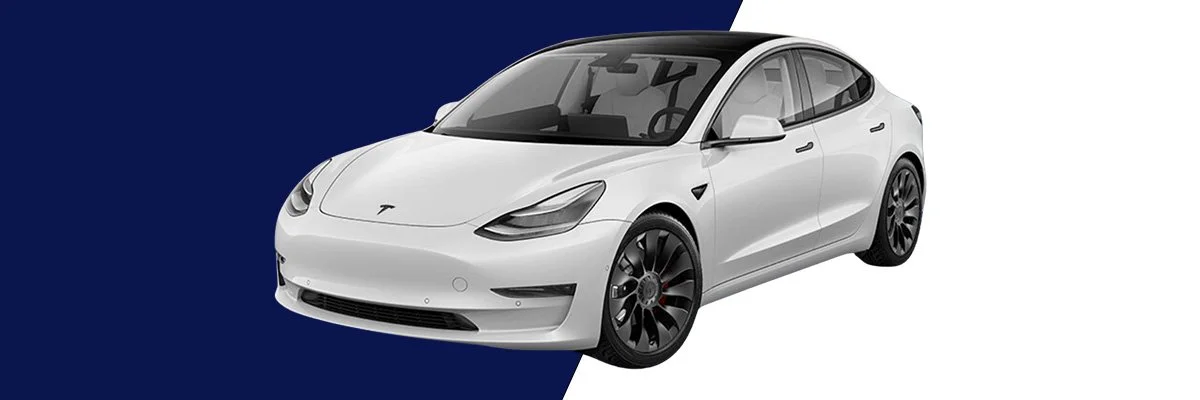Tesla Dilemma: The Financial Breakdown of Leasing vs. Buying
When it comes to acquiring a Tesla in 2025, potential owners face the challenging decision between leasing and buying. This decision is not just about preference but involves a thorough financial analysis to understand which option best suits one's economic situation and lifestyle needs.
This detailed blog post will explore the Tesla lease vs buy dilemma, offering insights, comparisons, and key considerations to help you make an informed decision.
Understanding the Basics of Tesla Leasing vs. Buying
Pros and Cons of Leasing a Tesla
Leasing a Tesla comes with distinct advantages:
Lower Upfront Costs: Typically, leasing a Tesla requires less cash upfront compared to buying. This can be appealing to those who prefer not to deplete their savings.
Lower Monthly Payments: Leases often offer lower monthly payments, making this an attractive option for budget-conscious individuals.
Latest Models: Leasing allows you to drive a new Tesla every few years, ensuring you always have the latest technology and efficiency improvements.
Warranty Coverage: Leased Teslas are covered under the manufacturer's warranty, reducing the worry about maintenance costs.
However, leasing has its drawbacks:
Mileage Restrictions: Most leases come with mileage limits, which can be a significant downside for those who drive long distances regularly.
No Ownership Equity: You don't build any equity in the car; you must return it at the end of the lease unless you buy it.
Pros and Cons of Buying a Tesla
Buying a Tesla, while more expensive upfront, offers long-term benefits:
Ownership Equity: When you buy, you own the Tesla once the payments are complete, which can be more economically favourable in the long run.
No Mileage Limits: Owners are free from the mileage restrictions of a lease, which is ideal for those who travel frequently.
Federal and State Incentives: Buyers may qualify for government incentives, like tax credits, unavailable to lessees.
Customisation: Owners can modify or customise their Teslas without violating lease agreements.
The downside to buying:
Higher Initial Costs: The upfront payment and monthly instalments for Tesla buying are generally higher than leasing.
Depreciation: Like all vehicles, Teslas depreciate over time, although slower than other brands.
Financial Analysis: Leasing vs. Buying
Cost Breakdown and Long-term Financial Impact
To understand the financial implications, consider a detailed breakdown of costs over time. Leasing might seem cheaper in the short term due to lower monthly payments and initial costs, but buying can be more cost-effective over several years.
Buying a Tesla also benefits you from the vehicle's residual value, even after several years of ownership, which is impossible with a lease.
Suppose the cost of leasing a Tesla Model 3 is $499 monthly with a $4,500 down payment for a 36-month term. In contrast, buying the same model might cost $899 monthly with a $6,000 down payment on a 60-month loan.
Over five years, the total cost of leasing could be less, but if you plan to keep the car longer, buying becomes more economical as you stop having monthly payments after the loan term.
Comparing Lease and Loan Terms in 2025
Tesla's Specific Lease Terms
Tesla's lease terms typically include options at the end of the lease, such as purchasing the leased vehicle or returning it and upgrading to a new model. It's important to understand the specific terms offered, such as the buyout price and any fees associated with lease termination.
Loan Options and Interest Rates
Loan terms and interest rates can vary significantly among financial institutions. Tesla provides financing through its partners, offering competitive rates and terms. It's advisable to shop around and compare offers from multiple lenders to find the best financial arrangement.
Practical Considerations for Tesla Drivers
Daily Usage and Lifestyle Impact
Consider how often you drive, the distances you typically travel, and whether having the latest model is important to you. These factors can heavily influence whether leasing or buying is more advantageous.
Technological Advancements
Tesla is at the forefront of automotive technology, regularly updating its vehicle software and releasing new hardware configurations. If staying updated with the latest technology is important to you, leasing may be a better option as it allows more frequent upgrades.
Making Your Decision
The decision to lease or buy a Tesla in 2025 depends heavily on personal circumstances, financial goals, and lifestyle needs. By carefully considering the financial implications, loan and lease terms, and practical usage considerations, you can choose to align with your long-term objectives and budget.
Considering a Tesla? Discover your best financial options with our expert Novated Finance solutions. Get started today with Novated Finance Australia.
Frequently Asked Question
-
It depends on your financial situation, driving habits, and how long you intend to keep the vehicle. Leasing can be more cost-effective for short-term usage, while buying is generally better for long-term financial savings.
-
Like most leases, the lessor generally sets the terms, but there may be some room for negotiation, particularly around mileage limits and down payment.
-
Federal tax credits for electric vehicles, such as a Tesla, are available to the original buyer of a new, qualifying vehicle and can reduce the amount of tax you owe up to a specified limit.
-
Generally, there is no additional fee for processing a lease extension online, but reviewing the terms for any potential charges is wise.
-
Start by choosing your BYD ATTO 3 model, fill out the Fast Form, and follow the subsequent steps outlined in the guide to complete the process.

